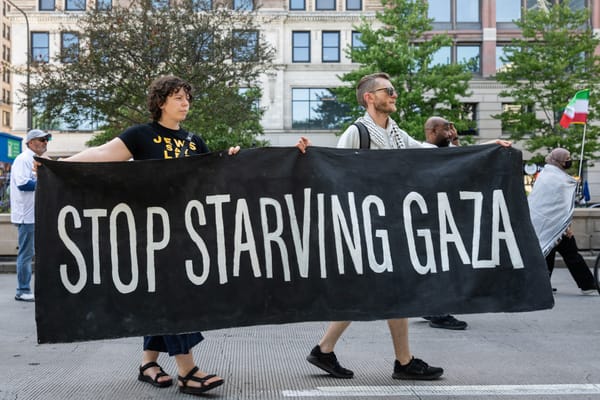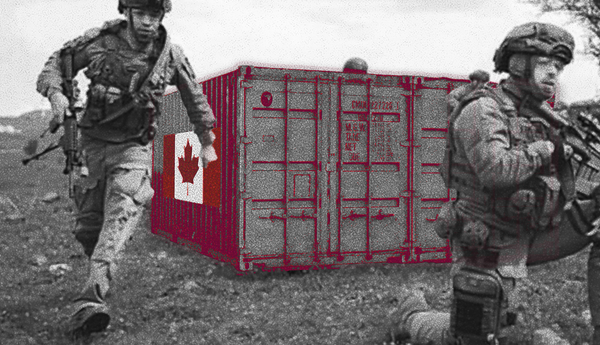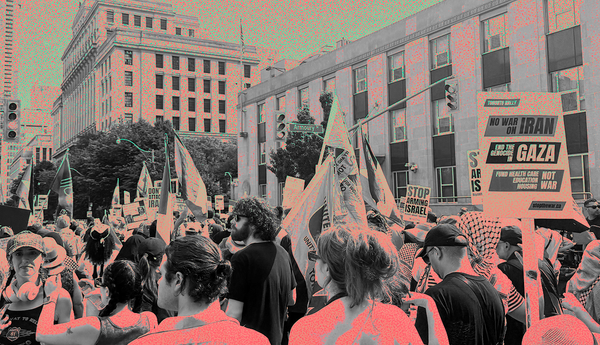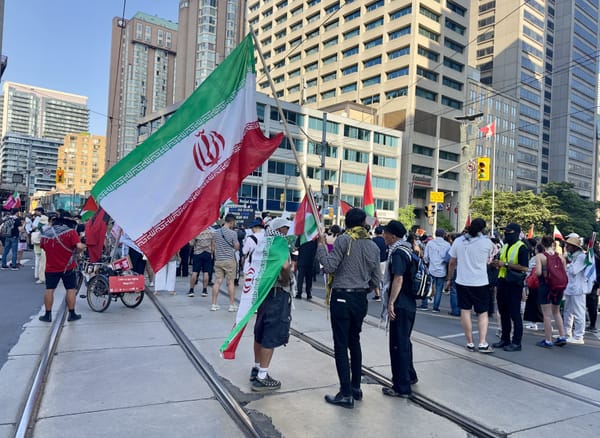You’ve probably heard the term “chickenhawk” before. It’s typically used to describe people that are war hawks — they push for wars, or to escalate ongoing conflicts — but are unwilling to actually take part in the conflict themselves. Former United States National Security Advisor John Bolton is often accused of being a chickenhawk, for example.
I’m not a huge fan of the term, because I think it portrays those who do join wars as somehow morally superior to those that don’t. I don’t think that’s the right approach, because we should be doing whatever we can to discourage people from taking part in illegal and immoral military ventures. For example, it would have been better for the people of Iraq to have had a United States full of chickenhawks as opposed to a theoretical one where everyone who supports a war is willing to join in. Fewer Western troops going abroad is always a good thing.
Still, I do think it’s worth asking people who push to start or escalate conflicts if they’d personally take part in them. This is not to accuse them of being cowardly or hypocrites, but rather to get a better sense of whose lives they believe are worth sacrificing for the conflicts they cheer on. What sort of person do they have in mind when they call for people in their country to go fight abroad? Do they include themselves, or others like them?
With that in mind, I took a read through Canadian media outlets over the past 10 or so days to find opinion articles arguing for any of the following things: Canada to expand its military for war in Ukraine; Canada to send troops to fight in Ukraine; Canadians to go on their own to fight in Ukraine. Then, I reached out to the people that wrote the articles, quoted the parts where they called for any of these things and asked if they’d take part in them.
Fortunately, because of how tight I decided to make the requirements for inclusion, I didn’t find too many examples. Still, I did email all of them. Here’s what they told me. (I’ve ordered the replies based on when I received them.)
On March 1, the National Post published an article by Adam Zivo, columnist and head of partnerships and development at the NATO Association of Canada, titled “The West must be prepared to support a Ukrainian insurgency if the country falls.” Zivo argues, “While everything should be done to bolster Ukraine in its defensive war against the Russian invasion, the West should be prepared to switch strategies and support a Ukrainian insurgency should Russia be victorious. […] Should a Ukrainian insurgency emerge, Canada should, if it takes its moral obligations seriously, contribute to its success.”
I asked Zivo if he would join such an insurgency or is planning to go to Ukraine now to fight. Here’s how he responded:
“I’m flying to Poland tomorrow, where I’ll be staying for a week so I can spotlight the experiences of Ukrainian refugees and their supporters. I’m paying for the associated expenses out of my own pocket and am using up my vacation days from my day job to free up time for this. One of my areas of focus will be LGBTQ refugees – I’m currently in contact with several international LGBTQ rights advocates to see what would be the most effective way to assist.
“I expect that your email is intended to create one of those ‘gotcha’ moments, where advocacy for anti-colonial resistance is only valid insofar as the advocate is willing to put their life on the line for that particular cause. So, noting your past writing and beliefs on Palestinian struggles, let me flip the question back to you: do you intend to travel to Palestine to fight there? Have you asked similar questions to those in your circles who enthusiastically support anti-colonial struggles that you sympathize with? Or does your standard for advocacy legitimacy only exist insofar as it can be used to minimize Russian aggression?
“I invite you to come with me to Poland, if you’d like. I’ll even cover your AirBnB. Perhaps refugee tears will wash the taste of Russian boots out of your mouth.”
I will take that as a no.
Also on March 1, the Toronto Star published an article by Julian Spencer-Churchill, a Concordia professor, titled “West cannot delay in helping Ukraine fight Russian invaders.” Spencer-Churchill argues, “The later the western intervention, the greater the outrageous indignities and atrocities […] Ukrainians are no longer just Ukrainians, but democratic-minded Europeans who are begging for our help. What are we waiting for?”
I asked Spencer-Churchill if he is planning to go fight in Ukraine, as the government there is currently calling for foreigners to join their efforts. Here’s how he responded:
“I did consider going, but mostly out of outrage. Plus, despite my years in service as an officer from 1988 to 2003, I am old, and serve best by raising hell here. I also have two children I need to support through school and university, although I do believe fathers fight better and harder than single young adults.
“Ukraine does not need bodies or military skills, they had a decent reserve system; what they need is heavy equipment like tanks, artillery, air defense and aircraft, and a cordon in the meantime of local militaries, baked (sic) up by the militaries and nuclear umbrella of NATO’s senior powers. What Canada can do is hand over our equipment with some trainers, and perhaps commit more troops to the Baltics, and threaten to intercept Russian LNG ships that pass thru the Bering Strait.
“I am mostly working on a number of pieces trying to convince the general public that nuclear deterrence is robust and Putin’s nuclear threats can be ignored.”
On March 2, the National Post published an article by columnist Tasha Kheiriddin titled “Canada needs the ability to defend itself in an increasingly uncertain world.” Kheiriddin argues, “A strong military is not a luxury. It is a necessity. And Canada needs to up its game. […] our Forces must step up their recruitment efforts. According to defence expert Christian Leuprecht of the Royal Military College, Canada is short 7,500 troops, which are needed to bring the Armed Forces up to its authorized strength.”
I asked Kheiriddin if she is planning to join the army, or has ever considered doing so. Here’s how she responded:
“I am not giving interviews at the present time as I work on my potential leadership bid for the CPC – that said, I have not been a member of the Armed Forces and it is not currently in my plans.”
Three days later, Kheiriddin announced that she’d decided against running to be the leader of the Conservative Party.
Also on March 2, the Hub published an article by Macdonald-Laurier Institute (MLI) communications and digital media manager, Brett Byers, and “expert” Marcus Kolga, titled “Canada can still do more to help Ukraine and counter Putin.” Kolga and Byers argue, “We must do all that we can today, to support Ukraine in its fight against authoritarianism. […] We should make it easy for Canadian volunteers to go to Ukraine.”
I emailed Byers to ask if he was planning to go join volunteers in Ukraine. I also asked him to forward the email to Kolga, as Byers’ email is listed as the contact for Kolga on MLI’s website. I have yet to receive an official response from either, but Kolga did block me on Twitter at some point after I sent my email. I will count that as a reply.
I plan to update this article if I get any more replies (particularly from Kolga or Byers, or National Post columnist Terry Glavin, who didn’t reply to my emails). I also will send out more emails if/when I come across future articles published in Canadian media that meet the requirements I mentioned. If you see any, feel free to reach out to me on Twitter.







